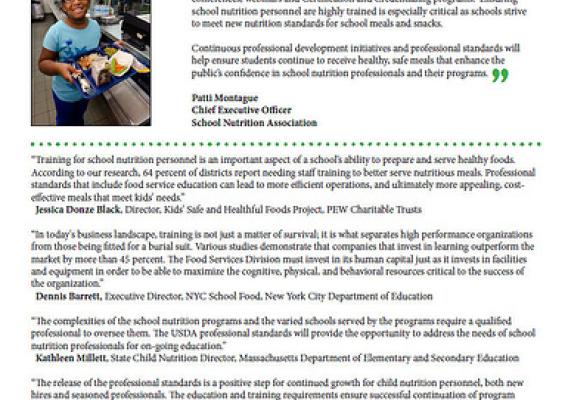To kickoff National Nutrition Month, USDA is again celebrating National School Breakfast Week (March 3 – 7) to support the health and well-being of our nation’s children. National Nutrition Month is the perfect time to highlight the essential role nutrition plays in sustaining healthier lives. A well-balanced breakfast serves as an important first step to a healthier life—and a healthier next generation!
The case for breakfast is a strong one. Research reveals that students who consume breakfast make greater strides on standardized tests, pay attention and behave better in class, and are less frequently tardy, absent or visiting the nurse’s office. Eating breakfast is also positively linked with maintaining a healthy weight – and avoiding health problems associated with obesity. Given the current rates of childhood obesity and related health problems, it’s vital for children and families to eat healthier meals and snacks throughout the day.
Studies also show that children who skip breakfast are at an academic disadvantage: They have slower memory recall, make more errors and are more likely to repeat a grade.








